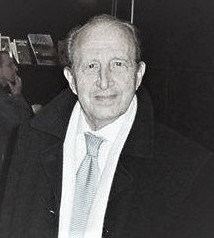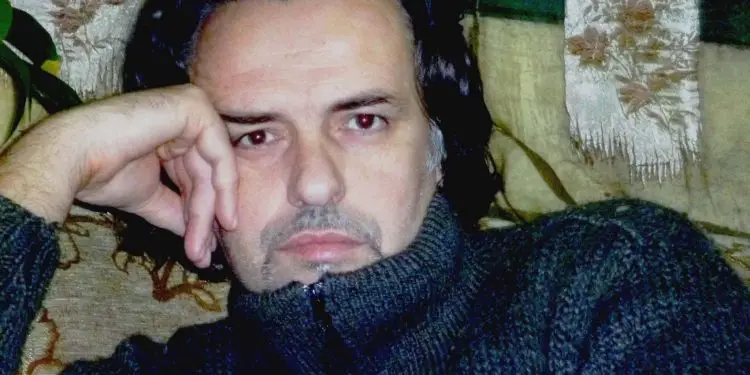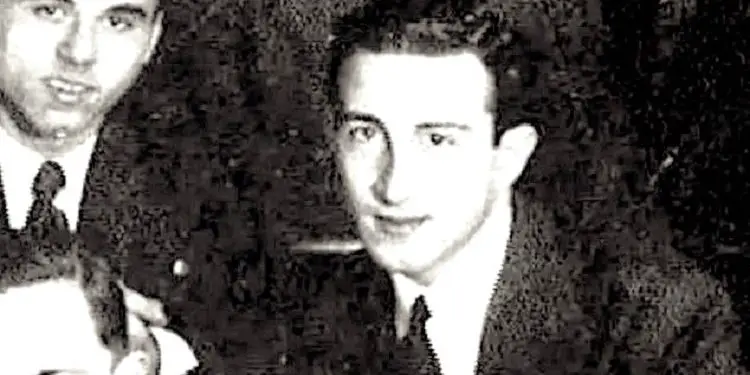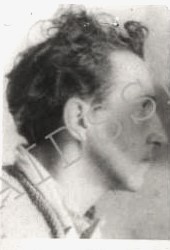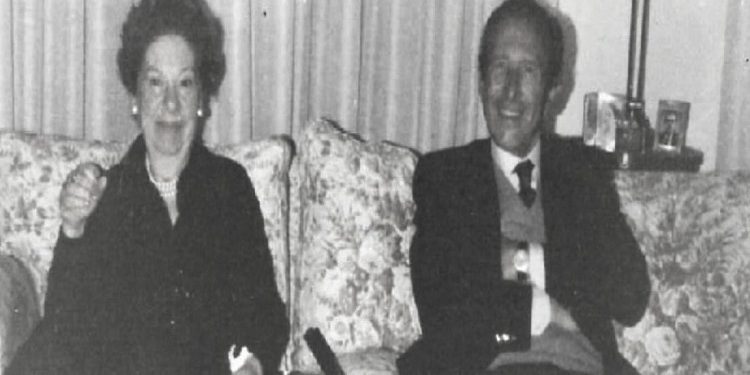By Albert Vataj
The second part
Memorie.al / Exactly 108 years ago, on March 16, 1916, one of the most outstanding personalities of Albanian culture, Jusuf Vrioni, was born. The Albanian tradition of translation preserves in its memory the names and work of many passionate and self-sacrificing zealots, who with their grace built bridges of communication, making the spirit and the Albanian aesthetic world universal. Jusuf Vrioni is one of those stars that shone in the sky of this miracle. Today, on this occasion, we humbly owe a memory to the modest man, the world-class intellectual, the translator who learned to speak French, the masterpiece of the great writer, Ismail Kadare.
Continues from last issue
Translation time
…Translations of official texts were not always done without causing problems, which were reflected in me, according to their importance, sometimes with transitory boredom, sometimes with real concerns. I remember a French journalist and publisher, named Patrik Kessel, who came to Tirana to prepare in France, the XIX volume of the complete works of Enver Hoxha, which bore the title; “The Great Divergence” and dealing with the break with the revisionists.
To have translated all kinds of documents: minutes of the meetings of members of the Political Bureau, three speeches of Hoxha (the one in Bucharest in June 1960, the one at the Conference of 81 Communist parties in Moscow, in November of the same year, as and another, which he kept when he returned from the Soviet capital).
To these texts, quite alive with colors, was added the exchange of correspondence between Mehmet Shehu and number one, between the latter and Hysni Kapo and, finally, between Enver Hoxha and Ramiz Ali. Keseli had Misto Treska as his collaborator, the chairman of the Committee for Cultural and Friendly Relations with the Foreign and Francophone World. After sifting through our texts, they returned them to us full of remarks, pointing out, in one place a so-called false meaning, in another a counter-meaning.
All the changes they made were taken to the higher realms, and so began the wait. In the meantime, I, driven by scruples, but also try to calm the fear that had gripped me, gave the full text to a Frenchman, who at that time worked at Radio-Tirana, to read. His reaction was quick: “They are crazy! There are no false meanings, no counter-meanings. Many, we can talk about shades of meaning”!
The wait was prolonged. The deputy director of the Political Book Publishing House (“8-November”) informed me that this problem would be examined in the Central Committee. Of course, this issue, in the reality of that time, was part of the unspoken and would be seen, apparently, by Nexhmije Hoxha, Enver’s wife, who would present it to the latter. I felt that my existence was once again at a crossroads.
I knew that some were waiting for the slightest trigger, to give me the final blow. With “opposite” background and training, they called me; “usurper”. After two and a half days of waiting, the vice principal called our small team. The vice-principal, who was a communist after all, was one of the fairest and warmest people I have ever known. She immediately put me at ease. I was lucky, she told me, because I had narrowly escaped. The Central Committee left the final version of the text to our judgment (that is, mine)…!
During this period, there were several other episodes that proved the importance of the control exercised over me, especially related to a book, which Enver Hoxha had titled “Eurocommunism is anti-communism”. We were in 1980. In this work, the First Secretary of the Party furiously attacked the Euro-communist trend that had appeared in Western Europe, especially in France, Italy and Spain. He called Santiagi Karilo “Renegati Karilo”.
Hoxha did not spare communist leaders and French writers either; they all had a stamp, since; “Zorzh Marsheja, who embraced the theorizations of Rozhe Garodija, and appears here as a successor of Tito”, up to the writers and “former defenders of socialist realism, such as; Aragoni, Andre Stili, Andre Vyrmser, who not only shook him, but also sold his soul and skin to revisionism”…!
The book was translated and made ready for printing. The only problem I had was the title. To add them, or not to add commas (L’Eurocommunisme, c’est de l’anticommunisme)? In Albanian there was no comma, but I had in mind, Proudhon’s work, “La proprieté c’est le vol) (Property is theft). In some editions, this title has a comma, in others it doesn’t…!
I put the title in French…! After a few days, I was called to the office by the Central Committee, where they had taken the cover of the book. “What is this comma”?! An authoritative voice asked me. I tried to argue the choice I had made, not on the grammatical level, but talking about the rhythm, the cadence.
The official’s reaction was firm: “No, no! The comma should be removed”! The Central Committee ordered the 50,000 printed caps to be returned to cardboard, because it was impossible to erase that damn comma from the glossy paper. Another cover was ordered, without punctuation, and the book was published. Personally, I didn’t have any particular consequences. Fortunately, they were not in those conditions that Siorani dictates, when he writes: “I dream of a world where you can die for a comma”…!
…One day in October 1980, the director called me to the office, where there was a representative of the Central Committee, who wanted to meet me. “Don’t you see!” he told me as soon as I entered, and he gave me a copy of the French translation of “Khrushovians” by Enver Hoxha. “Read what’s inside”! – he continued. After turning the first page, I noticed, to my great surprise, a dedication from the author himself. The one of the party and the state, the historical leader of socialist Albania, congratulated me for my translations.
Did he mean only political translations? I am inclined to think that when he had read to him “The Great Winter” and the chapter about it, something had clicked in his mind. He must have read it. At that exact moment, I thought, he had started to make this gesture…! Of course, those who were annoyed by this kind of success, tried to put me in the shadows, highlighting the merits of other translators, for the employees of the Security, the fact that I had translated Enver Hoxha, did not change my degree at all, to “social dangerousness”.
Secretly, they tried to make me look as bad as possible, implying that, working diligently on my translations, I was trying to do; I don’t know what trick…! The fact that I translated Kadare into French also put me in a delicate position, because at that time he was not seen favorably by some power structures. They criticized him for the subjectivist treatment he gave to history, as well as for the completely personal use, according to them, of the mythical fund of Albania.
The editor-in-chief heard about my connections, even quite rare ones, with Kadare. “He is passing the time, translating Ismail,” he told me. – There are much more important books waiting to be translated!” Thus, I was in a paradoxical situation: on the one hand I was translating a master of fiction and poetry and, on the other hand, the embodiment of rigor and the representative end of the “pure line”.
I gave in French two antagonistic worlds, which were addressed to two types of readers, very far from each other. For Kadare, I worked openly in my home, while for Enver Hoxha, the translation was surrounded by an atmosphere of paranoia and secrecy, typical of the regime.
They constantly ordered us that; we did not have to extract anything from the content of the texts. The directorate had put bars on the stairs of the floor, where the translator of “Njas” worked; we were separate from the rest of the Publishing House. In the evening, Enver Hoxha’s texts were put in the safes. The mania of secrecy, the constant fear of espionage was concretely felt. I don’t know what the poor “revisionists” could have done with these texts, if they had tried to add them to their hands; they told us that, if such a thing happened, it would be terrible. If only those writings were the conduits of sacred formulas, decisive for the future of the world!
Biography of Jusuf Vrion
He was born in Corfu, Greece, on March 16, 1916. He spent his early years in Corfu and then in Berat. After the appointment of his father, Ilias Bey Vrioni, as Foreign Minister and Minister Plenipotentiary in Paris, the family moved to the French capital in 1925. Jusuf Vrioni completed his primary and secondary education at the “Janson de Sailly” Lyceum”, Paris and the higher one, at the “Grande École des Hautes Études Commerciales” and at the “Institut d’Études Politiques” of Paris.
In 1939, he returned to Albania, but the outbreak of the Second World War forced him to move to Rome that same year, to continue his further studies. He returned to Tirana in 1943, a date that marked the reversal of his fate. On September 13, 1947, he was arrested by the dictatorial regime and accused of “espionage and agitation and propaganda”. From February 1949 until April 1950, he was barbarically tortured in one of the seventeen infamous cells of Koçi Xoxes.
In July 1950, he was sentenced to 15 years of imprisonment and forced labor in Shtyllas of Fier. He was released at the end of 1958 and was exiled to Fier for a period of several months. In 1960, for the international propaganda needs of the dictatorial regime, he was appointed in Tirana as a translator. Among his first translations is the novel “The General of the Dead Army”, by Ismail Kadare, which was later published in Paris. However, his name as a translator would begin to appear in publications in France only in the 1980s.
Although he spent most of his time translating and editing Enver Hoxha’s propaganda texts, Jusuf Vrioni found time to translate Ismail Kadare’s other novels. Thanks to the elegance of his French, Ismail Kadare’s novels began to attract extraordinary attention in the francophone public. Around the end of the 80s, Jusuf Vrioni began to enjoy fame as an unparalleled translator, in the intellectual and artistic circles of the capital.
In the first years of post-dictatorship Albania, Jusuf Vrioni, thanks to his multidimensional culture, as an intellectual, engaged in the circles of civil society and for a while served as the Chairman of the Helsinki Committee for Human Rights. The infamous crisis of 1997 would force him to leave his homeland again and return to his beloved Paris.
In 1998, he was appointed Ambassador of the Republic of Albania to UNESCO and on May 22 of this year, for his rich contribution to the French language, he was decorated by the French Republic, with the order; “Chevalier de la Légion d’Honneur”, like once his father, Ilias Bey Vrioni, was decorated in the late 1920s, with the order “Grand Officier de la Légion d’Honneur” by the French Republic.
Jusuf Vrioni passed away in Paris in May 2001, while serving as Ambassador of the Republic of Albania to UNESCO. Berat, the birthplace of the Vrionas, through the city’s municipality, would honor Jusuf Vrio after his death, on June 18, 2001, with the title of “Honorary Citizen”. In 2006, the Ministry of Culture, Tourism, Youth and Sports of the Republic of Albania created the “Jusuf Vrioni” award for the recognition and appreciation of translators with a valuable contribution to the recognition and promotion of Albanian literature in foreign languages and cultures. He had had much in life, but had received very little. And he was the ‘Aristocrat of knowledge’, the man of indomitable will, and the man unyielding before work, the philosopher and thinker Jusuf Vrioni.
– “It’s better to hurt yourself than the other person, this was one of Vrion’s principles”, – recalls Edmond Tupja, the translator, who has worked for years with the man, who, although many taught him, graduated in Law and Higher Commercial Studies in France, with a Doctorate in Jurisprudence in Italy, served 13 years in prison, in the notorious camps and prisons of the dictatorship. He never accepted the accusation of “agent of France”, even though the most severe tortures were performed on his body.
He worked on draining the Maliq marsh, on the construction of the Rinas Airport, and changed concentration camps and prison cells several times. “I’m happy when I find difficulties at work, because good work doesn’t come easily”, – always said to his colleagues, Jusuf Vrioni, who after coming out of prison, worked as a translator in the former “8 November” Publishing House. In this House, where the works of Enver Hoxha and works of the Albanian Labor Party were translated, Jusuf Vrioni worked until he retired in 1990.
There he built his life, there he had his friends, there he would learn with his kindness the work ethic of his colleagues, which he had in every sense of his. “An intellectual of a high level, one of the rare encyclopedic minds in Albania, He, was the man”, – says the translator Edmond Tupja. – “Jusuf Vrioni was a philosopher and thinker, a man with a strong character, but he was generous and solidary and always tireless before work”, – says Tupja. All the works of Ismail Kadare, published in France, carry the translation of Jusuf Vrioni.
And Vrioni undoubtedly has a heavy weight, in the success that the well-known writer of Albania has had in one of the most enlightened countries in culture. As Kadare expressed, when Vrioni passed away; “He is a cultural loss, as well as a personal one, because he was an irreplaceable translator. He was my friend, my collaborator in a great action that continued for 40 years.” As Albania’s ambassador to UNESCO, Vrioni, although advanced in age, would never stop working.
His book, “Erase Worlds”, written directly in French, was a great and indisputable success in Parisian intellectual circles. A special plane brought the body of the late Jusuf Vrioni to Tirana, on June 1, 2001. An intellectual of European proportions, honored with the “Great Medal of Francophonie”, with the “Knight of Arts and Letters” Order, with the “Legion” Order of Honor”, he also held the title “Honorary Citizen of the City of Arles”.
Jusuf Vrioni, the man who was hit hard by life and who had the kindness and strength of character to face it, played an incomparable role in the recognition of Albanian literature in the world, thus bringing a great service to the Albanian nation. He did this service at a time when the nation needed more than ever to break its political and cultural isolation. For this, Albanian culture will always be grateful. Memorie.al




